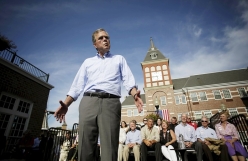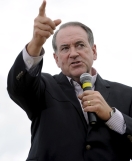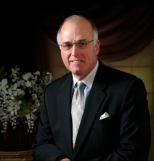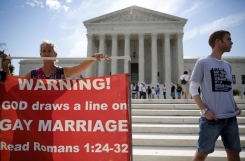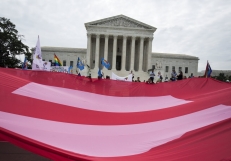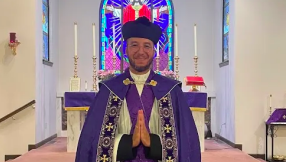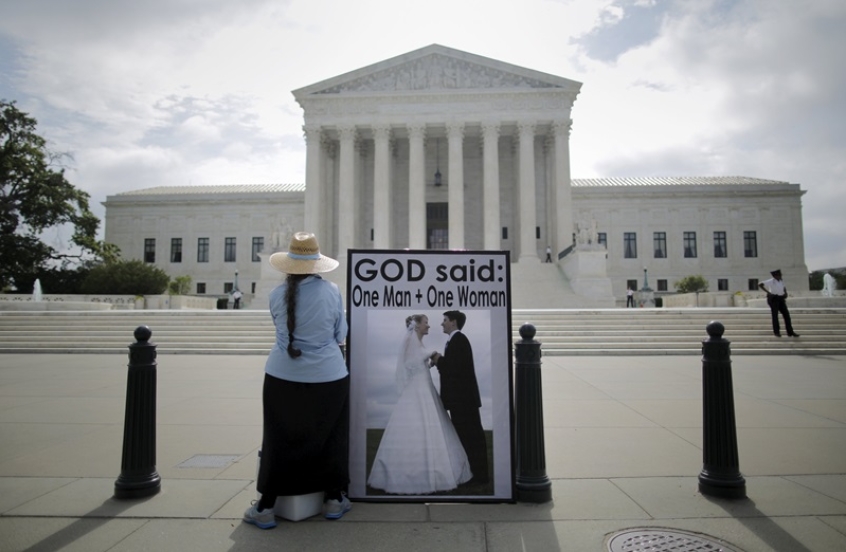
In a landmark decision, the US Supreme Court declared on Friday that gay marriage is a constitutional right, making it mandatory for all 50 states of the federal republic to recognise same-sex unions.
The ruling overturned a November decision by the US Sixth Circuit Court of Appeals that upheld traditional marriage laws in Michigan, Ohio, Kentucky, and Tennessee.
The wide-ranging decision immediately drew the condemnation of Christian leaders worldwide, warning that it will greatly undermine religious liberty in America and lead to the persecution of more Christians.
By a vote of 5-4, the Supreme Court recognised same-sex "marriages" throughout the United States under the 14th Amendment.
Justice Anthony Kennedy, writing the majority opinion, said the court now holds that same-sex couples may "exercise the fundamental right to marry," a liberty Kennedy said that had long been denied to them.
However, the ruling drew the rebuke of Franklin Graham, president of the Billy Graham Evangelistic Association, who said that the Supreme Court has knowingly chosen to reject biblical truths and endorsed sin instead, a Gospel Herald report said.
"I'm disappointed because the government is recognizing sin," Graham told conservative columnist Todd Starnes.
"This court is endorsing sin. That's what homosexuality is—a sin against God...I believe God could bring judgment upon America."
Graham said Christians should prepare themselves for possible persecution following the Supreme Court's decision.
"You better be ready and you better be prepared because it's coming. There will be persecution of Christians for our stand," he said.
Regardless of the ruling, Graham said he will refuse to marry any same-sex couple. "I will never recognise it in my heart because God gave marriage between a man and a woman and that's what marriage is," he said. "And I don't think the court—since it never defined marriage—doesn't have the right to redefine it. God gave us marriage. Period. And God doesn't change his mind."
Russell Moore, president of the Southern Baptist Ethics and Religious Liberty Commission, likewise denounced the Supreme Court ruling, saying it was "improper" for the court to redefine an institution that has existed long before man thought of establishing a government.
"I believe this action of finding some illusory Fourteenth Amendment right to same-sex marriage will have wide-ranging and perilous consequences for the stability of families and for freedom of religion," Moore warned.
America's Catholic bishops joined in the protest, telling Catholics to bear witness to the truth of marriage despite the court's decision.
"Regardless of what a narrow majority of the Supreme Court may declare at this moment in history, the nature of the human person and marriage remains unchanged and unchangeable," said Archbishop Joseph Kurtz of Louisville, president of the US bishops conference.
"Jesus Christ, with great love, taught unambiguously that from the beginning marriage is the lifelong union of one man and one woman," Kurtz added. "As Catholic bishops, we follow our Lord and will continue to teach and to act according to this truth."
"The unique meaning of marriage as the union of one man and one woman is inscribed in our bodies as male and female," Kurtz said.
"Mandating marriage redefinition across the country is a tragic error that harms the common good and most vulnerable among us, especially children. The law has a duty to support every child's basic right to be raised, where possible, by his or her married mother and father in a stable home."
It was noteworthy that Chief Justice John Roberts and Justices Antonin Scalia, Clarence Thomas and Samuel A. Alito dissented from the majority decision and, in an unusual step, each wrote separate opinions.
"The majority's decision is an act of will, not legal judgment," Roberts said. "The right it announces has no basis in the Constitution or this court's precedent."
"Five lawyers have closed the debate and enacted their own vision of marriage as a matter of constitutional law," he said.
Justice Antonin Scalia called the decision a "threat to American democracy," "hubris" and a "judicial putsch."
Justice Thomas said same-sex marriage and religious liberty are now on a collision course as individuals and churches are expected to face demands to participate and endorse same-sex marriages. The court decision, he said, "short circuits" the political process "with potentially ruinous consequences for religious liberty."
Justice Alito, for his part, said he expects the decision "will be used to vilify Americans who are unwilling to assent to the new orthodoxy."
To mitigate the effects of the court's decision, calls were immediately made for a federal constitutional amendment to protect the definition of marriage. Voters in 30 states in the federal republic have already passed constitutional amendments and referenda strengthening the legal definition of marriage as a union of one man and one woman. However, many of these efforts have been nullified in state or federal court challenges.
Following court's decision, which throws away God's meaning for marriage, "the battlefield shifts to religious freedom," according to Dr. Richard Land, president of Southern Evangelical Seminary.
"Will the progressive, totalitarian and intolerant left weaponise the government and attempt to force or compel people to affirm same-sex behavior and relationships? Or will they respect the freedom of conscience guaranteed by the Constitution?" Land asked.
Nearly 16 million members of the Southern Baptist Convention were encouraged to "openly reject any mandated legal definition of marriage and to use their influence to affirm God's design for life and relationships," according to a Fox News report.
Legal experts said the court's decision faces considerable social and legal obstacles.
"Redefining marriage to make it a genderless institution fundamentally changes marriage," said Ryan Anderson, the William E. Simon senior research fellow in American Principles and Public Policy at the Heritage Foundation.
"It makes the relationship more about the desires of adults than about the needs, or the rights, of children," he added.
The Supreme Court also played "activist" in re-defining marriage, an issue that should have been left to the state-level democratic process, said Caleb Dalton, a legal counsel with Alliance Defending Freedom.
The Court "invented a new constitutional right," Dalton told the Catholic News Agency.
"The Fourteenth Amendment does not speak to what marriage is, and today the Supreme Court decided that it knows better than millions of Americans what the best social policy for the United States is."










